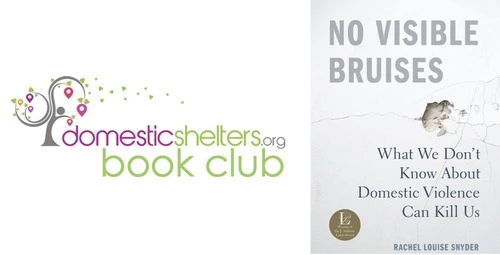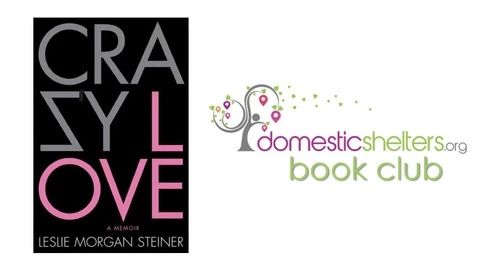1. Select a discrete app icon.

notes
It's Time We Start Being Nicer to Ourselves
DomesticShelters.org Book Club pick focuses on self-compassion
- Apr 13, 2020

A 20-something artist from New York, Caroline Caldwell, coined the viral quote: In a society that profits from your self-doubt, liking yourself is a rebellious act.
The reason it resonated with so many is that self-acceptance seems to be in short supply lately. Everywhere we look, society is telling us to change ourselves—do better, do more; be thinner, taller, stronger, faster, smarter, funnier, more resilient, more driven, more successful.
In short, we’re often told we’re not enough. And never is this truer of a mindset than for survivors of domestic violence who have either been told, though psychological abuse, that they’re some degree of horrible, or through self-blame that they’re at fault for falling for an abuser or allowing the abuse to occur.
That’s why the book, How to Be Nice to Yourself: Effective Strategies to Increase Self-Love and Acceptance by Laura Silberstein-Tirch, PsyD is so needed, especially by survivors. It’s the next selection in the DomesticShelters.org Book Club.
Released last June, Silberstein-Tirch’s self-help tome takes a new approach—less preachy and more interactive. You’ll need a notebook and yes, there will be homework. From journaling to meditation, Silberstein-Tirch uses various techniques to teach readers how to be intentional about their compassion, starting with tracking your thoughts (Do you speak kindly to yourself?) before learning how to silence your inner critic. You’ll see how your body reacts to judgment (Maybe this is why you can’t sleep), and you’ll evaluate your compassion and forgiveness for others (How do you respond to others’ pain?). It’s a quick read at 150 pages but an insightful, and possibly healing one.
Below, we asked Silberstein-Tirch a few questions about how she wrote her book and why she feels like self-love is a topic we all need to focus on right now.
DomesticShelters.org: In addition to being a licensed psychologist, you’re also the director of the Center for Compassion Focused Therapy in New York. What is that exactly?
Laura Silberstein-Tirch, PsyD: The Center is a psychotherapy practice in New York City where we offer individual therapy for those of all ages and who are looking for help with a range of psychological difficulties. Our staff also offers training and consultation to other mental health professionals in compassion-focused approaches.
DS: This is your first book as the sole author. What made you want to write about self-compassion?
LST: Throughout my roles as a psychotherapist, supervisor and author, compassion has been at the core of all the work I do. Helping people cultivate their capacity for compassion involves helping people become more sensitive to suffering in themselves and others coupled with a commitment help alleviate or prevent that suffering. For most people, practicing self-compassion is one of the biggest challenges. Because of this seemingly universal struggle, I wanted to write a book that specifically addressed how to face our own struggles and suffering and learn to be more compassionate with ourselves.
Additionally, because all the other books that I have co-authored are mostly intended for mental health professionals, I wanted to write one that would benefit anyone who read it. My hope is that the book, How to Be Nice to Yourself can help anyone who is suffering through the power of learning and practicing self-compassion.
DS: Why do we tend to be our own worst critics?
LST: There are many reasons why we have an inner critic and why we can be so very hard on ourselves. For one, all humans have biased, threat-focused minds that play all kinds of tricks on us, especially when it comes to ourselves. We come hard-wired with an always-on, better-safe-than-sorry way of dealing with possible or actual problems or threats, including social threats like rejection. Furthermore, the culture we live in is increasingly challenging and competitive, with an emphasis on accomplishing and achieving. In addition to this, many of us also have individual learning histories that have led us to be more critical of ourselves.
While the nature of our inner critic will vary from person to person, all too often our inner critic can be overly harsh and self-harassing. These experiences are often linked to experiences of shame or fear of being “bad” in some way. Self-criticism can be seen as a way of creating a false sense of control over those things that we experience as threatening or “wrong” with us, even those actions that are outside of our control or awareness. However, when we bully and shame ourselves, we are often very ineffective in our response to our suffering and end up feeling even worse.
DS: This isn’t just a book you sit down and read; it’s a workbook where the reader is asked to participate, answer questions in a journal and do some serious self-reflection. Why did you format it this way?
LST: Compassion is a behavior that requires practice. For many, being self-compassionate is a new habit that is best learned through experience and rehearsal. There is also some strong research on making written commitments and using reflective writing as very useful in learning new behaviors and expanding one’s repertoire. When we make ourselves more available to self-compassion through practice and reflection, the more accessible and available this way of being with ourselves becomes.
DS: Given the work that you do, do you feel like you’ve mastered loving yourself or do you fall into a negative self-talk trap every so often?
LST: Over the years I have become much more self-compassionate through practice and reflection. I have also learned that developing self-compassion is an ongoing journey. A large part of living a self-compassionate life involves returning to the path when you have strayed. Everyone strays. The real mastery of self-compassion lies in our ability to return to the practice of compassion. Of course, there are times when my inner critic shows up and tries to pull me off course. Each time this happens, my compassionate self is there, reminding me she has my back, that there is a kinder, more effective way of responding to whatever it is I am struggling with and helps me turn towards self-compassion.
DS: For many survivors of domestic violence, someone has likely been telling them for quite a while that they’re worthless, crazy, stupid or otherwise failing in some way. How do they stop hearing that play in their own heads like a broken record?
LST: Instead of deliberately trying to stop such critical, intrusive thoughts, self-compassion is about cultivating a strong, wise and caring inner voice and presence. We learn more effective and kinder ways of responding to ourselves. This new voice has our own best interests at heart.
Self-compassion, particularly for those who have survived interpersonal abuse and/or trauma, is about cultivating agency and reclaiming our sense of self. Practicing self-compassion begins with an awareness of our suffering, that is, knowing when that broken record is playing, being sensitive to our experience as it unfolds. Then we can start seeing it for what it is with compassionate understanding: an old broken record and critical intrusive thoughts that originated with someone else, this is not our fault and not what we would choose for ourselves. Finally, self-compassion involves action, cultivating a new voice, a new way of responding and being with ourselves, ways that feel safe, kind, and deeply committed to our well-being.
This self-compassionate perspective can remind us that we are not our stories or anyone else’s stories about us. We are not the records that play in our heads. As we develop this new voice, this new way of responding to ourselves, we practice, practice, practice. This may be taking time out of our day to slow down and respond to ourselves in new, more compassionate ways when the old broken record shows up. This starts by noticing how we are holding ourselves in our mind and body and shifting to more compassionate, kinder, caring ways of being both physically and psychologically. In the book, I review many ways to do this by cultivating compassionate practices for feelings, thoughts, and behaviors. Over time and with practice, our compassionate selves become strong, clear and more and more available to us.
DS: What are the benefits of having more self-compassion? And, for parents, how will demonstrating self-compassion impact kids?
LST: There are numerous benefits to practicing self-compassion. For example, research has indicated that individuals who are more self-compassionate tend to have reduced levels of anxiety and depression, increased motivation, increased psychological flexibility and report having better social connections.
Our kids learn by observing our behavior and mimicking what we do. If we want our children to be compassionate with themselves and reap all the benefits that come with this capacity, it is important we model this behavior. By being more aware, understanding and kind with ourselves we are demonstrating effective ways of responding to our own suffering. Over time this style of responding to ourselves provides a template that our children can emulate and incorporate into their repertoire of behaviors.
DS: If you hear others talking down about themselves, how can you help them to see this without sounding overly preachy?
LST: It depends on the person since everyone is different. What one person interprets as preachy another may find helpful. That being said, you may ask someone first if they want the feedback by saying something like, “it sounds like you are really upset with yourself, would it be okay if I share something with you that helps me when I feel that way?” If they agree you can point out how hard they are being on themselves and offer a compassionate view of the situation, like “I know how upset you are with (name the behavior or situation). When I am down on myself, I like to ask myself, what would I say to a close friend who is going through something similar.”
Donate and change a life
Your support gives hope and help to victims of domestic violence every day.
Another approach can be validating what they are going through and expressing care for the person; for instance: “It seems like you are being harder on yourself than you would ever be on someone you care about, I hate to see you hurting you like that.” Or you can provide a brief nonjudgmental description or understanding of what’s going on for the person without the critical language they are using. Ultimately, trust your inner wisdom and what you know about this other person, then try to put yourself in their shoes, before offering help, ask yourself: “If I were them right now, what would I want to hear, what would be helpful to me?”
Looking for someone to speak with? Enter your location to find phone numbers for domestic violence experts in your area.
Have a question about domestic violence? Type your question below to find answers.








